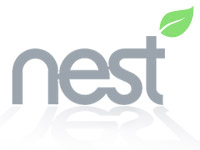
Google’s testing program for its open source Chrome operating system is no ordinary beta. The company is inviting applications to be one of the reportedly 60,000 users who will be part of the beta test and receive a Cr-48 netbook loaded with Chrome OS. Google reportedly is signing up beta testers by U.S. ZIP code — rather than on a first-come-first-served basis — to get broad input.
The Cr-48 black netbook has no logo. The package comes with a card from Intel, which suggests it contains an Intel processor. The Cr-48 is built for cloud-based computing, so there is no indication of the size of the hard drive.
The hardware has a few oddities. There is no caps lock key, but there is a search key. What sets the Cr-48 apart from other PCs is what it lacks. There are no function keys and there is only one USB port with limited functionality.
With so many of the differences between the Chrome OS test hardware and Windows-based hardware, some of those testing the Cr-48 have compared it to the experience of using a smartphone. Because of this, testers have suggested the netbook with Chrome OS feels like a product that would sell in the US$150 to $200 range.
Is Google Going Apple?
The hardware has been a big part of the Chrome OS introduction. This prompts the question: Is Google planning to introduce hardware as part of the commercial launch, much like Apple ties its proprietary hardware to its operating system?
This view could be refuted by Google’s announcement that Acer and Samsung plan to release hardware with Chrome OS this coming summer.
“Some hardware OEMs are already saying they’re developing a Chrome OS netbook version,” Charles King, principal analyst at Pund-IT told TechNewsWorld. “In the price range of netbooks and small footprint laptops, the profit margins are brutally thin. Nobody wants to go into that business.”
The hardware aspect of the Chrome OS beta may simply be a necessary tool to show off the software.
“When companies send out new applications, they will include some hardware. Processor guys do this all the time. If they have a new PC processor, they will have it manufactured in a white-box system and they’ll send it out for testing,” said King. “The systems are basic. They don’t have all the features the branded version will have, but it’s enough to get a decent sense of what they’re doing.”
The beta netbook is slim on features in part because the most salient functionality Google is displaying is in the cloud.
“They would like to leverage Gmail into the cloud and get people to use Google Apps. There will be some storage in the netbooks with Google Chrome OS, but not the 250-gig drives you see on computers there days,” said King. “The Chrome OS is similar in user experience to what people are experiencing today on their smartphones. There will be a generational inflection point where people will start to use cloud-enabled computers.”
Advertising at Its Heart
Despite all its recent forays into new markets, Google has always been careful to fortify its advertising prospects.
“I don’t think Google plans to dip into hardware,” technology project manager and Geek 2.0 blogger Steven Savage told TechNewsWorld.
“Google’s interest is in getting as many people as possible to use their core services, which are advertising and media,” he stressed. “They want to make sure people can get to those services. Their biggest fear would be that other companies might make hardware or software that could lock them out.”
There was a bit of flash in the introduction of Chrome OS — as if to show the world that Google can play on the same turf with Apple and Microsoft.
“The releases of these operating systems (Android and Chrome OS) represent a straight-up challenge to those producing current devices — Apple and Microsoft,” said Savage. This is a reminder of Google’s power. Google does not have to be behind the most popular OS — they merely need to give an alternative to keep other companies in line.”





















































